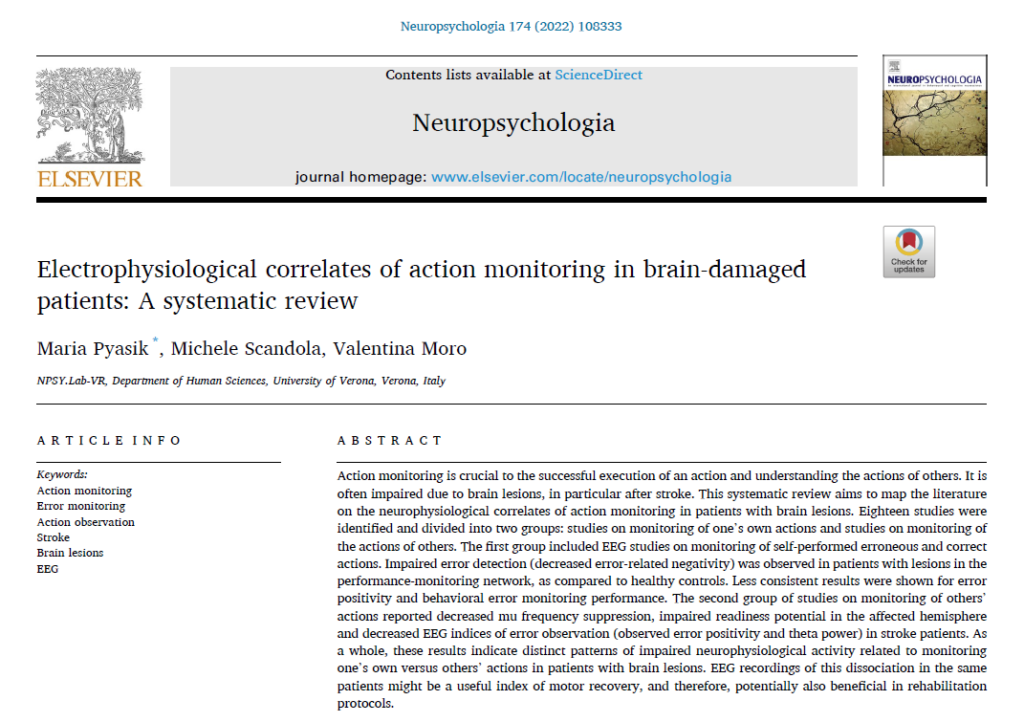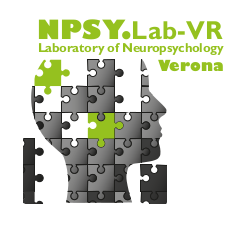Authors: Maria Pyasik, Michele Scandola, Valentina Moro
Action monitoring is crucial to the successful execution of an action and understanding the actions of others. It is often impaired due to brain lesions, in particular after stroke. This systematic review aims to map the literature on the neurophysiological correlates of action monitoring in patients with brain lesions. Eighteen studies were identified and divided into two groups: studies on monitoring of one’s own actions and studies on monitoring of the actions of others. The first group included EEG studies on monitoring of self-performed erroneous and correct actions. Impaired error detection (decreased error-related negativity) was observed in patients with lesions in the performance-monitoring network, as compared to healthy controls. Less consistent results were shown for error positivity and behavioral error monitoring performance. The second group of studies on monitoring of others’ actions reported decreased mu frequency suppression, impaired readiness potential in the affected hemisphere and decreased EEG indices of error observation (observed error positivity and theta power) in stroke patients. As a whole, these results indicate distinct patterns of impaired neurophysiological activity related to monitoring one’s own versus others’ actions in patients with brain lesions. EEG recordings of this dissociation in the same patients might be a useful index of motor recovery, and therefore, potentially also beneficial in rehabilitation protocols.

